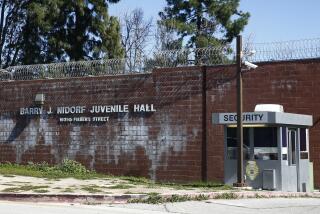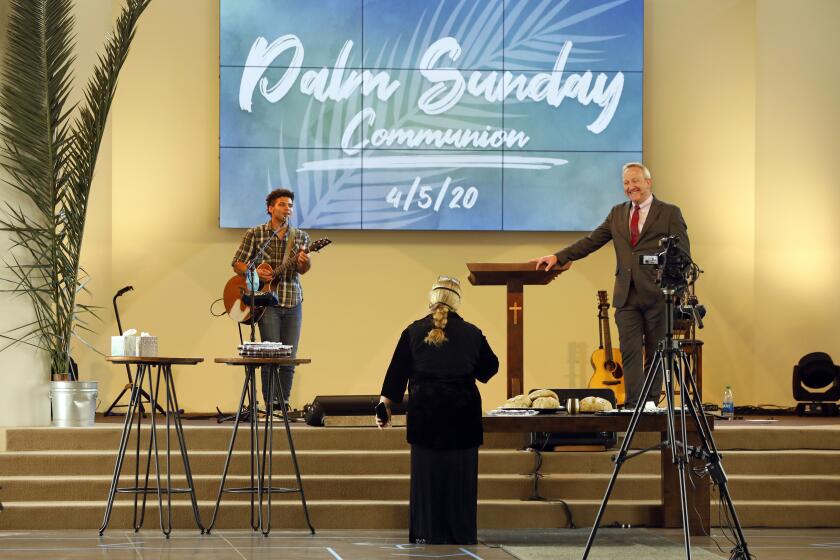Most L.A. County youths held for prostitution come from foster care
A majority of juveniles arrested on prostitution charges in Los Angeles County come from the county’s foster care system, and, in some cases, pimps use underage sex workers to recruit fellow group home residents, county officials said.
Until now, foster youth caught in the sex trade have largely been the responsibility of the county Probation Department.
The Los Angeles County Board of Supervisors voted Tuesday to launch a multiagency task force to address the ongoing issue of sex trafficking involving youth in the foster care system. The move was spurred in part by this month’s passage of an anti-sex-trafficking ballot measure, which county officials said will shift much of the responsibility for juvenile prostitutes from the criminal justice system to the foster care system.
Of the 174 juveniles arrested on prostitution-related charges in Los Angeles County in 2010, 59% were in the foster care system, according to Probation Department statistics. The department has launched initiatives to address the issue of sex trafficking, including running prevention workshops in juvenile halls.
But underage sex workers may no longer fall under the Probation Department’s jurisdiction.
Proposition 35, which imposes tougher penalties on pimps, also includes language that decriminalizes prostitution for minors caught up in the trade — although there is debate about the effects of that change. But officials fear that greater numbers of young people involved in prostitution will become the responsibility of the county Department of Children and Family Services. Department director Philip Browning said his agency is “really unprepared at this point” to handle such an influx.
Browning and others said the department is not empowered to keep children in group homes and other placements against their will, and can’t prevent them from running away. Emilio I. Mendoza, a children services’ program manager, said many young sex workers fear they will be punished by their pimps if they don’t leave foster homes when they have an opportunity do so.
“These kids see themselves as having no way out unless they’re in a secure setting,” he said.
Probation camps and juvenile halls provide that security. But advocates say the criminal justice system is not the proper setting for young victims of abuse and coercion.
“They should not be treated as the criminal. They are a victim. The pimps should be treated as the criminal and given long prison sentences,” said county Supervisor Michael D. Antonovich, who proposed the task force. Antonovich said during Tuesday’s meeting that the trafficking issue came to the county board’s attention early this year, when they learned that young girls were serving as prostitutes around Staples Center after Lakers games.
The task force includes county children’s services, probation and mental health workers as well as law enforcement officials. It will examine the scope of the foster youth prostitution problem and report back with recommendations in six months.
But Lois Lee, founder of a Los Angeles-based, 24-bed shelter for child sex workers called Children of the Night, said she is skeptical of the claim that kids in the foster system are particularly vulnerable to sex trafficking. The majority of the shelter’s clients were under the legal guardianship of their parents when they arrived, according to the organization’s 2011 annual report.
“They’re kids that [the Department of Children and Family Services] left behind in the first place,” Lee said.
More to Read
Sign up for Essential California
The most important California stories and recommendations in your inbox every morning.
You may occasionally receive promotional content from the Los Angeles Times.











